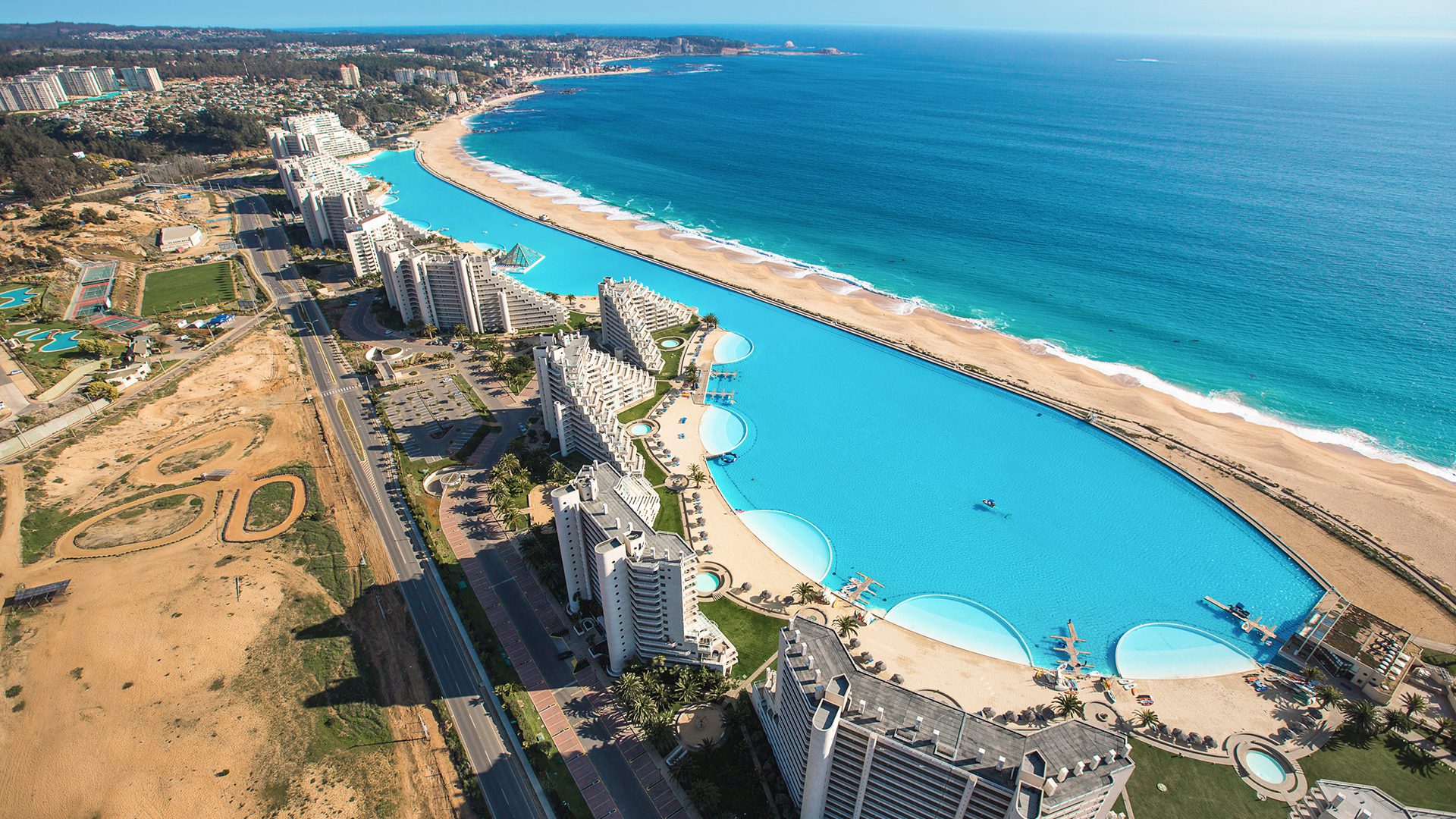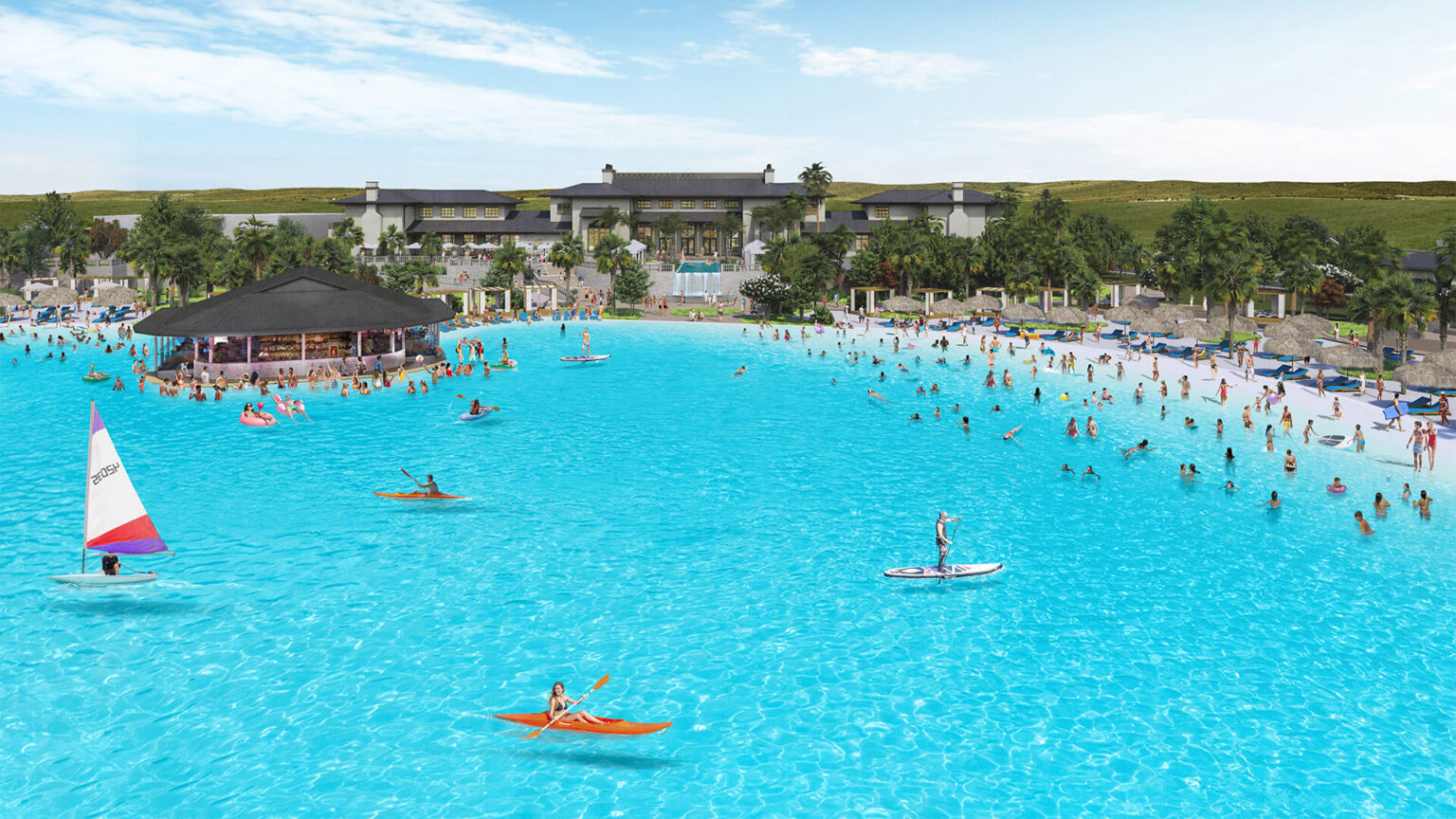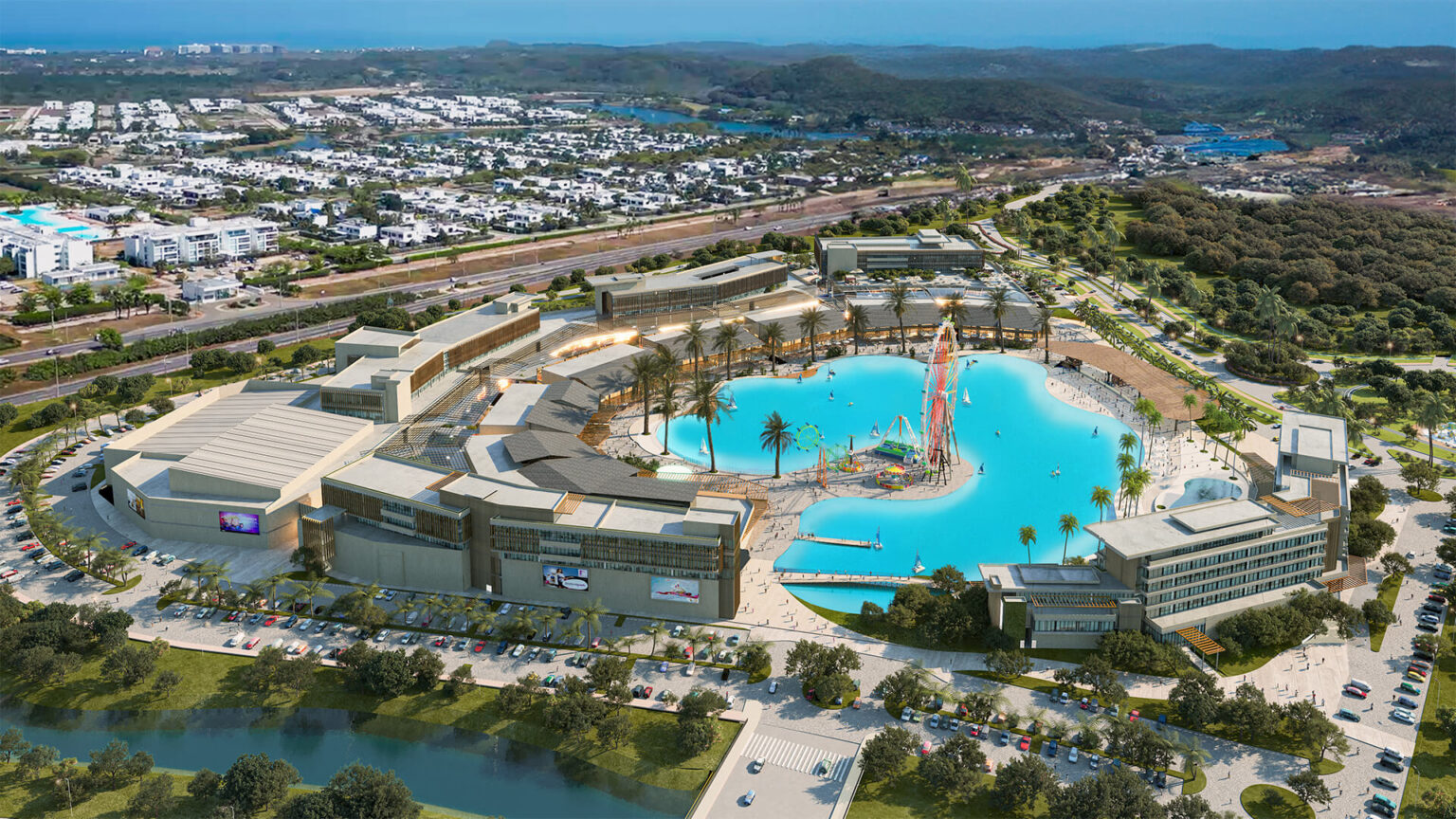The Canadian media outlet INDIE88 FM did an article in which it compared the monumental body of turquoise water of the iconic San Alfonso del Mar project with a piece of the ocean.
Due to its extension of 8 hectares, it obtained the Guinness World Record for being the largest crystalline lagoon on the planet and held it until 2015, when another Crystal Lagoons amenity was inaugurated, Sharm El Sheik, Egypt. To date, this latest development has maintained this world record.
The website shows the immense turquoise lagoon, highlighting the characteristics that transform it into a pioneering amenity.
Located on the coast of Chile, in Algarrobo, the pristine waters of the lagoon span over half a mile and 20 acres in total. These dimensions made it the Guinness World Record for being the largest crystalline lagoon on the planet, until 2015, when another Crystal Lagoons amenity in Sharm El Sheik, Egypt, was inaugurated. To date, this latest development has maintained the world record.
A new revolution
San Alfonso del Mar was the first project in the world to employ the firm’s innovative technology, which quickly transformed the development into the “most successful second home resort in the southern hemisphere.”
The turquoise lagoon positively impacts the area, not only by creating an eye-catching and safe environment for swimming and other water sports, but it also offers spectacular views and numerous opportunities for recreational activities and walks. As a consequence, San Alfonso del Mar has transformed and revitalized the entire community.
Today, having revolutionized the real estate world for 10 years, the firm is now transforming city life with its Public Access Lagoons™, also known as PAL™. These monumental crystalline lagoons, which are surrounded by white sand beaches, retail and gastronomic services, can be accessed via ticketed-entry. In this way, Crystal Lagoons brings a piece of the ocean to the heart of the city, creating beach life in urban surroundings, much like an English architect did 200 years ago, when he introduced small forests into the city of London, which we know as city parks.







